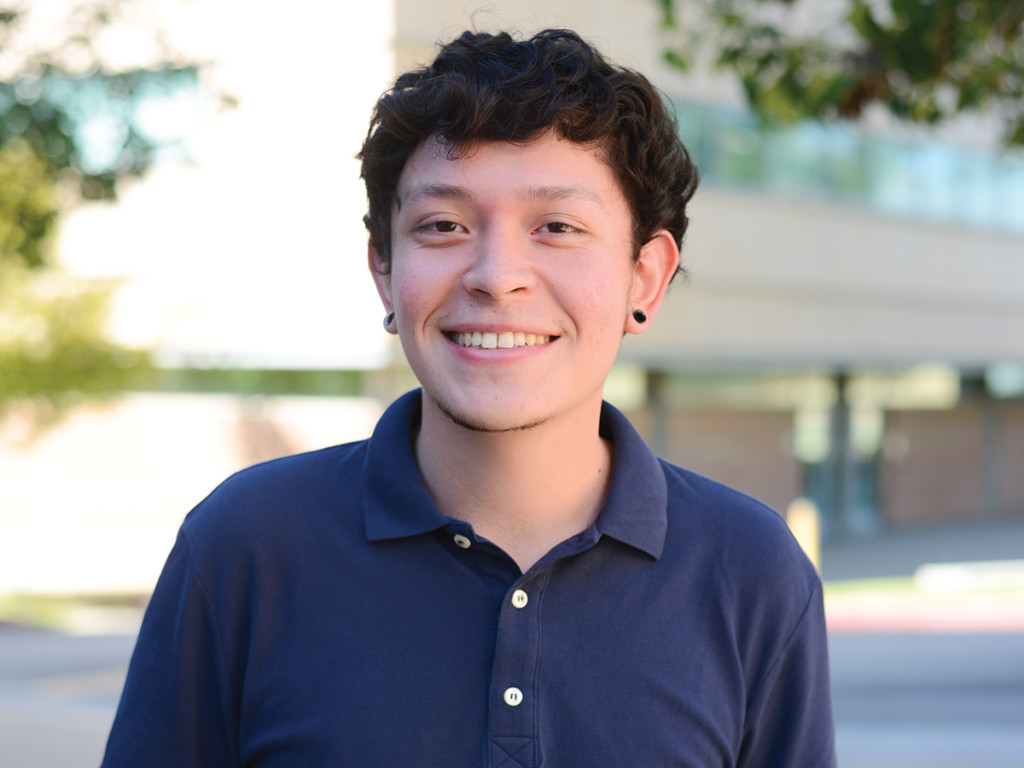
I was scrolling through Facebook the other day when I happened upon a short video that was supposed to open up dialogue about the “Chicano identity.” The video was no more than a minute long and the text that flashed across the screen read, “Newer generations (of Mexican Americans) often don’t identify as Chicano and view (the term) as outdated.” The comments section was full of people who agreed and proudly rejected the term altogether. While I’d never force my own beliefs onto someone else and their identity, I couldn’t help but feel like the people who deemed the term “outdated” have done so without really understanding the term Chicano/a in the first place.
The community that I grew up in was composed of mostly Mexican immigrants and families of second- or third-generation Mexican-Americans; my grandparents came to the U.S. when they were teenagers to find better lives for themselves. Growing up here, I always felt like I was in this weird in-between space because I knew I was definitely Mexican and not white by any means. However, my family and my community continually told me otherwise. “Me senti ni de aqui ni de alla” (“I felt neither from here nor there.”)
My family was lower-middle class and held anti-Mexican and anti-immigrant views. My mother was always told, “You’re not going to grow up to be just some Mexican,” by her hardworking father. Like my sister and I, my mom was discouraged from learning or speaking Spanish or practicing Mexican traditions and was conditioned to view unassimilated Mexican immigrants as stupid and even an embarrassment. It didn’t help that the curriculum from which we were taught in school was completely Eurocentric and allowed little to no room for the celebration or analysis of Mexican or Mexican-American history.
Kids from my school called me “pocho” because when I did speak Spanish it was wrong or spoken with an American accent, was fair-skinned and for the most part I was culturally illiterate. They could sense that I had assimilated and always reminded me with a joke here and there. I didn’t have enough confidence in myself to say anything back to them because I lacked the knowledge and motivation to defend myself, which left me feeling disoriented and unconnected to my community. My identity was an amorphous blob that didn’t start to really take shape until I attended college.
When I got to UCR, I began to learn the full history of the country that I live in, the country from which my family came and the historical injustices that were leveled against the people of this continent, including the Mexica from whom my mother’s maiden name Patlan comes from. I realized that pervasive white supremacy, internalized racism and the enticement of the fleeting American Dream are what affected my family’s perception of our culture and our people and what ultimately triggered my lifelong identity crisis.
I learned that we descended from a once-thriving society of great poets, philosophers, engineers, astronomers, architects and warriors and that I had more fundamental commonalities with the dark-skinned Mexicana who spoke in broken English than I did with the white neighbors that my grandpa had wanted us to live among. For once, I finally felt connected. All of this knowledge lit a fire in me to want to take it all back to my people and strive to create change within my community. I learned of the elders who felt dispossessed and I could look to for guidance, elders who called themselves Chicano/as.
At the most basic level, a Chicana/o is someone who is usually of Mexican descent, who recognizes their indigenous roots, their mixed blood and who seeks social justice within their communities. The term Chicano was the only word that could completely encompass my experience as a Mexican-American in the 21st century, feeling neither here nor there. For someone to dismiss the term as outdated shows how little they’ve been paying attention to the current social environment.
Sure, the term resonates with people who strongly identify with the movement that started in the 1960s, when farm workers, high school and college students and many other Mexican-Americans took to the streets to protest the injustices that were being leveled against them and their communities. However, the movement didn’t stay stuck in the 1960s. As time went on, powerful voices that were once marginalized by Chicano machismo during the advent of the movement, which included the voices of Chicanas, Afro-Latina/os, undocumented immigrants and LGBTQ Chicana/os, reinvigorated and diversified the discourse and challenged the dominant thought. The evolution of the term from the male-centered “Chicano” to the gender-neutral “Xicanx,” “Chicanx” or “Chican@” reflects the importance of intersectionality, gender neutrality and equality and shows that the identity can and will continue to evolve to be as inclusive as it can.
Until the terms racism, machismo, injustice, cultural erasure and white supremacy become outdated, I will consider myself a Chicano, part of the ever-changing movimiento.








